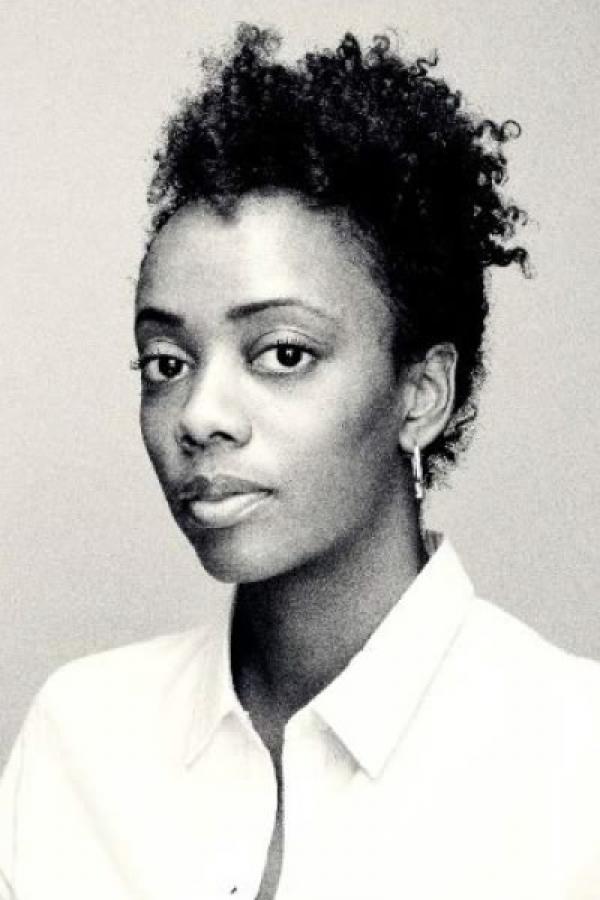Angela Flournoy

Photo courtesy of Angela Flournoy
Bio
Angela Flournoy is the author of The Turner House, which was a finalist for the National Book Award and a New York Times notable book of the year. The novel was also a finalist for the Center for Fiction First Novel Prize, the PEN/Robert W. Bingham Prize for Debut Fiction, and an NAACP Image Award. Her nonfiction has appeared in the New York Times, the New York Times Magazine, the Nation, the Los Angeles Times, and elsewhere. A graduate of the Iowa Writers' Workshop, Flournoy received her undergraduate degree from the University of Southern California. She currently teaches at Princeton University.
In many ways my second novel feels more audacious than my first. There are fewer characters this time around, true, but the idea of looking forward into the unknown years that lie ahead of us all is a tall order. And yet I am committed to venturing into this terrain because imagining what the future might look like for black women and girls is important to me. On days when I feel particularly unsure of whether the words I’m putting on the page are worth the effort—and resources—required to get them there, simply remembering that I am a recipient of this prestigious grant has done the trick to nudge me forward more than once. I am grateful that the NEA is in the nudging business, and am honored to be part of a long, proud legacy of Literature Fellows.
Excerpt from The Turner House
"Lelah,"
Some people in Gamblers Anonymous, a place she hadn’t been in months, claimed the tiny ball, spinning and spinning around on its wheel, was the reason they loved the game. “It’s like you get a bonus, a little bit of a show from that ball,” Zach, a white man who always wore a suit and tie, once said. Other people in the group had nodded knowingly.
Lelah stood at the foot of the roulette table. Just having a look, she told herself. If she were playing, she would never stand here, so far away from the wheel and the top half of the board, a position where she’d end up asking strangers to put her chips where she wanted them to go. If she were playing, she’d hope to get the orange chips, would request them depending on the dealer. But she couldn’t play if she wanted to right now. She’d spent the last of her cash on lunch for herself and Bobbie, and she didn’t know whether she’d get approved for unemployment, so she couldn’t spend the $183 in the bank.
“No more bets,” the dealer said. He waved a pudgy, upturned palm over the table. People settled back into their chairs.
The ball landed on double zero. There were a few cheers, but mostly groans. It was a crowded night in Motor City Casino.
“The one time I take my money off those zeros they come up,” the light-skinned woman next to Lelah said. “I been splitting the zeros all night.”
She looked at Lelah, waited for a response.
“I know, I saw you,” Lelah said. “That’s how it always goes though, right? That means you’ll hit soon.”
“I hope so,” the woman said. Her fake eyelashes made her look drowsy, like a middle-aged blinking babydoll. She wore a rhinestone-trimmed dark denim jacket and matching jeans. Brown cowboy boots with a low heel. “All I know is that I’ll be back to splitting these zeros from now on.”
Lelah grinned at her. She enjoyed this false camaraderie almost as much as she did the chips.
She told herself she’d come to Motor City to eat. Her twenty-five complimentary tickets for the buffet—Seafood Saturdays included—were the only tangible benefit of thousands of games of roulette. She also had a Motor City VIP card. The irony of being a homeless, “very important” anything was not lost on Lelah as she presented the black and purple card to the valet out front. She anticipated a strange stare, or at least a smirk as he helped her out of her over-flowing car, but he didn’t seem to notice. It occurred to her, slightly depressed her, that she wasn’t the only homeless gambler in Motor City tonight.

